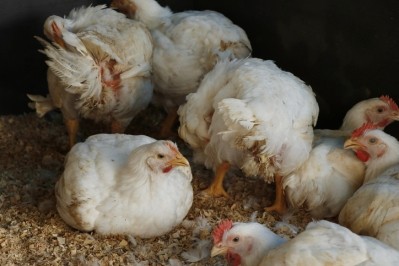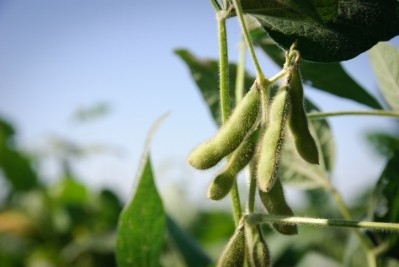Benson Hill: ‘We are enabling feed formulators to deliver on carbon reduction commitments’

We caught up with Anthony Kingsley, senior director of sustainability, ESG and stakeholder engagement at Benson Hill during the Blue Food Innovation Summit in London last month.
The company, he said, collaborates closely with players in the aquaculture feed industry to identify their challenges, and to see what solutions it can provide. It has established supply deals with Riverence, the largest land-based producer of steelhead and rainbow trout in the Americas, and with Danish aqua feed manufacturer, BioMar, helping both to reduce emissions through the integration of its ‘low impact’ soy ingredients into their value chains.
The St Louis, Missouri company is able to leverage its integrated supply chain model that combines seed innovation with closed loop farming and ingredient production to ensure an elevated level of traceability, he continued.
“Due to our vertical integration model, we can provide traceability all the way back to the farm. And because of that traceability, we have also been able to go through the Proterra Certification process, one of the first operators within the US to do so.”
Benson Hill looks to lower the environmental impact of feed ingredients through focusing on the genetics, by developing soy crop varieties with a high protein content. Its approach is to increase protein expression in the soybean plant itself, so that the need for additional processing is reduced.
Its ultra high-protein and low-oligosaccharide (UHPLO) soy ingredient has post-crush protein levels of around 60-65%.
The removal of multiple processing steps creates a reduction of carbon emissions and water use, enabling feed formulators to deliver on carbon reduction commitments, according to its sustainability lead.
LCA
“We have gone through a life cycle assessment, and we now know that, within the US, when you compare Benson Hill UHPLO soy with SPC products, we are looking at a 50% carbon reduction on a per kilogram of protein basis,” said Kingsley.
The company conducted a preliminary LCA exercise with Blonk Consultants in April 2021. The LCA followed ISO 14040 methodology, covering farm inputs, farm production and processing to a finished ingredient based mostly on secondary data from the Global Feed LCA Institute (GFLI). It included specific UHP soybeans and soybean meal average yield with protein and oil composition based on three years of non-commercial field testing with economic allocation of oil co-products. The results were then normalized by protein content validating that UHP soybean meal ingredients deliver equivalent protein content with reduced environmental impact when compared to typical SPC produced in the US.
Benson Hill outlined in its 2021 environment, social and governance (ESG) report that as it continues to leverage sophisticated agronomic and processing data collection through its closed loop supply chain strategy, additional secondary data will be replaced with actual in-house production data.
The crop developer produces its beans using traditional breeding methods allowing for their classification as non-GMO and, furthermore, their unrestricted sale in the US and in export markets, including Europe.
In Northern Europe, the firm is targeting the salmon market. In a feeding study of post-smolt Atlantic Salmon, Benson Hill UHPLO soy maintained equivalent performance to an SPC-based diet, and the product was also found to have robust performance in trout, marine finfish, and shrimp, based on feeding trials conducted by various third parties between 2014 and 2019.
Pet food
Besides aquaculture, Benson Hill is focused on human food applications and pet food, a recently announced area of focus for the supplier.
“To enable us to better serve the pet and human food plant-based markets, we’ve expanded and upgraded Dakota Ingredients, an upper Midwest-based yellow pea processor that is part of our ingredients business segment. Dakota Ingredients offers an elite grower program and closed-loop production capabilities that can now test premium yellow pea varieties and supply ingredients that are traceable and meet food-grade, kosher, and non-GMO certification standards.
“We’re currently engaged with pet and human food ingredient customers interested in the next generation of yellow pea protein ingredients and working to establish sustainability best practices across our supply chain.”








